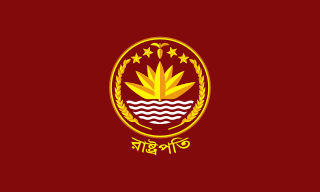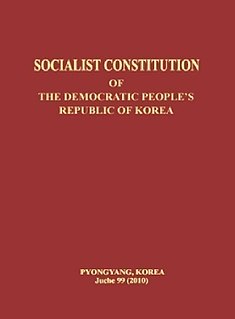
The foreign relations of North Macedonia since its independence in 1991 have been characterized by the country's efforts to gain membership in international organizations such as NATO and the European Union and to gain international recognition under its constitutional name, overshadowed by a long-standing, dead-locked dispute with neighboring Greece. Greek objections to the country's name have led to it being admitted to the United Nations and several other international fora only under the provisional designation Former Yugoslav Republic of Macedonia.

Bhutan has diplomatic relations with 54 of 193 member states of the United Nations, including the European Union. Bhutan's limited number of such relations, including the absence of formal relations with any of the permanent members of the United Nations Security Council, is part of a deliberate isolationist policy of limiting foreign influence in the state. This stance has been safeguarded by close relations with India, of which Bhutan has previously been considered a protected state.
The Five Principles of Peaceful Coexistence, also known as Panchsheel, were mentioned in the preamble of the Sino-Indian Agreement 1954. The principles subsequently adopted in a number of resolutions and statements, including the preamble to the Constitution of China.

A state religion is a religion or creed officially endorsed by a sovereign state. A state with an official religion, while not secular, is not necessarily a theocracy. State religions are official or government-sanctioned establishments of a religion, but the state does not need to be under the control of the religion nor is the state-sanctioned religion necessarily under the control of the state.

The Constitution of the Islamic Republic of Pakistan, also known as the 1973 Constitution, is the supreme law of Pakistan. Drafted by the government of Zulfiqar Ali Bhutto, with additional assistance from the country's opposition parties, it was approved by the Parliament on 10 April and ratified on 14 August 1973. The Constitution is intended to guide Pakistan's law, its political culture, and system. It identifies the state, people and their fundamental rights, state's constitutional law and orders, and also the constitutional structure and establishment of the institutions and the country's armed forces. The first three chapters establish the rules, mandate, and separate powers of the three branches of the government: a bicameral legislature; an executive branch governed by the Prime Minister as chief executive; and an apex federal judiciary headed by Supreme Court. The Constitution designates the President of Pakistan as a ceremonial Head of State who is to represent the unity of the state. The first six articles of the constitution outline the political system as federal parliamentary republic system; as well as Islam as its state religion. The Constitution also encapsulates provisions stipulating the legal system's compliance with Islamic injunctions contained in the Quran and Sunnah.

The president of Bangladesh officially the President of the People's Republic of Bangladesh is the ceremonial Head of State of Bangladesh and Commander-in-Chief of the Bangladesh Armed Forces.

The Simla Agreement, also spelled Shimla Agreement, was a peace treaty signed between India and Pakistan on 2 July 1972 in Shimla, the capital city of the Indian state of Himachal Pradesh. It followed the Indo-Pakistani War of 1971, which began after India intervened in East Pakistan as an ally of Bengali rebels who were fighting against Pakistani state forces in the Bangladesh Liberation War. The Indian intervention proved decisive in the war and led to East Pakistan's breakaway from its union with West Pakistan and the emergence of the independent state of Bangladesh.
The Constitution of Finland is the supreme source of national law of Finland. It defines the basis, structures and organisation of government, the relationship between the different constitutional organs, and lays out the fundamental rights of Finnish citizens, and individuals in general. The original Constitution Act was enacted in 1919, soon after Finland declared its independence in 1917. The current draft of the Constitution came into force on 1 March 2000.

The Constitution of Bangladesh, officially the Constitution of the People's Republic of Bangladesh is the supreme law of Bangladesh. The document provides the framework that demarcates the Bangladeshi republic with a unitary, parliamentary democracy, that enshrines fundamental human rights and freedoms, an independent judiciary, democratic local government and a national bureaucracy.

The Socialist Constitution of the Democratic People's Republic of Korea is the constitution of North Korea. It was approved by the 6th Supreme People's Assembly at its first session on 27 December 1972, and has been amended and supplemented in 1998, 2009, 2012, 2013, 2016 and twice in 2019. It replaced the country's first constitution which was approved in 1948.
The Directive Principles of State Policy of India are the guidelines or principles given to the institutes for governing the State of India.These are provided Part IV of the Constitution of India, are not enforceable by any court, but the principles laid down there in are considered 'Fundamental' in the governance of the country, making it the duty of the State to apply these principles in making laws to establish a just society in the country. The principles have been inspired by the Directive Principles given in the Constitution of Ireland which are related to socialjustice, economic welfare, foreign policy, and legal and administrative matters.

The Constitution of Kosovo, refers to the supreme law of the Republic of Kosovo. Article four of the constitution establishes the rules and separate powers of the three branches of the government. The unicameral Assembly of the Republic exercises the legislative power, the executive branch led by the President and the Prime Minister which are responsible for implementing laws and the judicial system headed by the Supreme Court.
The India–Bangladesh Treaty of Friendship, Cooperation and Peace was a 25-year treaty that was signed on 19 March 1972 forging close bilateral relations between India and the newly established state of Bangladesh. The treaty was also known as the Indira–Mujib Treaty, after the signatories of the treaty the Prime Minister of India Indira Gandhi and the Prime Minister of Bangladesh Sheikh Mujibur Rahman.

The Ministry of Foreign Affairs of Armenia (MFA) is a state body of executive power, which elaborates and implements the foreign policy of the Government of Armenia and organizes and manages diplomatic services. The MFA acts accordingly to the Constitution and legislation of Armenia. The Ministry of Foreign Affairs coordinates the activities of the executive power bodies of the Republic in the international arena. Since 2021, Ararat Mirzoyan has been the Minister of Foreign Affairs of Armenia.
Ministry of Foreign Affairs, abbreviated as MOFA, is the Bangladeshi state ministry which oversees foreign relations of Bangladesh.

Sino-Niuean relations are relations between China and Niue.
Secularism in Bangladesh is known as "neutrality of religion" under Bangladeshi law. Bangladesh is the first constitutionally secular country in South Asia, having declared itself as an explicitly secular state in 1972. It was the first and only Muslim-majority country in South Asia to enshrine secularism in its constitution. In the Constitution of Bangladesh, secularism is mentioned in the preamble as one of the fundamental principles of Bangladeshi law. Article 8 enshrines secularism as one of the fundamental principles of state policy. Article 12 elaborates further on secularism and freedom of religion.

The political status of the Cook Islands and Niue is formally defined as being states in free association within the Realm of New Zealand, which is made up of the Cook Islands, Niue, and New Zealand and its territories, Tokelau and the Ross Dependency. New Zealand carries out defence and foreign affairs on behalf of the two associated states, although some other countries have recognised them as sovereign entities.
Socialism is one of the four fundamental principles of state policy in the original Constitution of Bangladesh. Socialism in Bangladesh differs from socialist countries where all the means of production are owned socially. Socialism has been considered in the Constitution as a way to establish an exploitation-free society. The constitution allows cooperative and private ownership along with state ownership.
Socialism has been mentioned in several liberal democratic constitutions. It is referenced either in the form of denunciation or in form of construction, namely that the state in question seeks to establish a socialist society. In these cases, the intended meaning of the term socialism can vary widely and sometimes the constitutional references to socialism are left over from a previous period in the country's history.
















